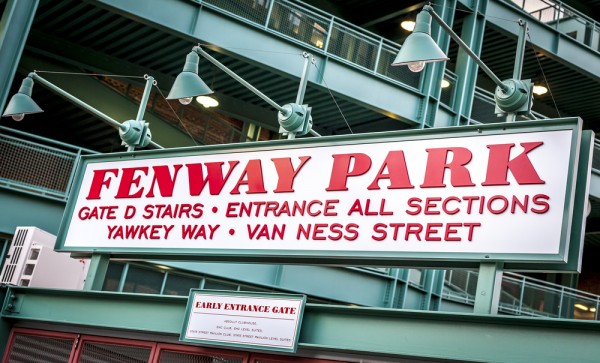Welcome, Massachusetts! This guide was written to provide you with a single place to find information about adoption within Massachusetts. It will walk you through everything from laws that will impact your adoption to reviews of adoption service providers in Massachusetts.
We’ve divided this guide into five parts: first, general information about adopting in MA, then sections dedicated to domestic infant adoption, foster adoption, international adoption, and stepparent adoption.

Did You Know?
- Boston completed the first U.S. subway system in 1897.
- Over 30 communities in the initial American Colonies named themselves after Benjamin Franklin
- There is a house in Rockport, MA, that is made completely out of newspapers
- The Basketball Hall of Fame is located in Springfield
- The Fig Newton was named after Newton, MA
Adoption in Massachusetts at a Glance
- Kids in foster care waiting to be adopted in 2014: 2,771
- Foster adoptions completed in 2014: 589
- International adoptions completed in 2015: 82
- Average time between TPR and adoption finalization: 29% (1-5 months), 32% (6-11 months)

Can I Adopt in Massachusetts?
- Age: 21+
- Marital status: Single, married, or divorced, children or no children
- Work: Stable enough to provide for family
- Personality: Warm, trusting, being able to provide unconditional support for the child, good sense of humor, self confident
- Experience: 10 week MAPP course, 1 night a week
- Home: Rent or own home
- Other requirements: Participants must pass a background check and provide character references to the adoption agency
- DISQUALIFYING CRIMES: Spousal or child abuse/neglect, crimes against children, and violent crimes including homicide, sexual assault
Devlop a Support System
It’s essential to have a good network of family, friends, and neighbors to support you through your adoption process.
It’s also important to connect with other adoptive parents. You can begin making these connections in our forums. You may also want to consider joining a support group for adoptive parents.
Domestic Infant Adoption in Massachusetts
Before you get started, check out our Baby Adoption Guide to learn more about the overall process of adopting an infant in the United States. Then, because laws and processes vary from state to state, come back to get the details about adoption in Massachusetts.
Get Professional Help
In Massachusetts, you are able to work with local and private agencies or attorneys to complete an adoption.
For more information about picking an adoption agency, learn about the Top 15 Things to Look for In An Adoption Agency.
Some people pursuing a private adoption find it beneficial to work with a professional adoption facilitator, an individual or organization that matches birth parents with adoptive parents in exchange for a fee.
Paid adoption facilitators/adoption advertising is limited or restricted in many states. The following are the guidelines outlined in Massachusetts statutes regarding adoption facilitators and adoption advertising:
Use of Advertisement
The Department of Children and Families is allowed to inform the general public about children available for adoption through the use of print, audio, video, electronic, and other media advertisements.
Use of Facilitators:
No person shall place or knowingly facilitate the placement of any child not related to the person by blood or marriage, other than a licensed adoption agency.
SOURCE: Ch. 119, § 391/2; Ch. 15D, § 6

Complete a Home Study
Regardless of whether you choose to adopt through an agency or adoption attorney, hopeful adoptive parents need to complete a home study to qualify for adoption.
This is different than a single home visit. The process includes completing paperwork, writing essays, obtaining letters of recommendation, completing a physical, and undergoing a criminal history background check. In a home study, a caseworker may visit multiple times in order to write a report culminating in approval for adoption.
Your home study social worker will help educate you about adoption and ensure that you (and your adoptive partner, if applicable) meet the requirements outlined above.
Learn more about the Home Study process.
Spread the Word
One of the most important things you can do while waiting for an adoption match is to let everyone know about your hope to adopt. Many adoption connections are made through word-of-mouth referrals.
Another great way to spread the word is through social media. Creating a profile on Adoption.com Parent Profiles allows you to easily share your story with those considering placing their child for adoption. Features like videos and photos, posts, Pinterest-like favorites, and recommendations and endorsements make it easy to create a profile as unique as you are, increasing the likelihood that you will stand out and connect with that right person. Rich communication options like video chat and instant messaging make connecting easy. A mobile-responsive design means that you will never be out of reach.
What’s more, Adoption.com receives over 650,000 monthly visits, which means your profile will receive unparalleled exposure. You can even view and monitor your progress through a detailed statistics page.
Ready to get started? Visit Parent Profiles.
Relinquishment
Without relinquishment of parental rights or consent, no adoption in Massachusetts is final.
- Who is required to give consent?
- Lawful parents, who may be adoptive parents
- Surviving parent
- Mother only if child is born out of wedlock
- Children ages 12 and up
When is consent not needed?
When the person to be adopted is 18 or older
- The court finds that the adoption is in the child’s best interest due to parental unfitness.
- (Parental unfitness can be established by any of the following)
- Parents abandon child
- Parents abuse the child
- The child is in out-of-home placement for 6 months without substantial contact from the parents
- The parent, without excuse, fails to provide proper care for the child
How to execute consent
The consent is to be subscribed in front of a notary public in the presence of two competent witnesses. The agency or person receiving custody of the child acts as the child’s guardian until the court moves to hear an adoption petition.
If the consent is signed only by the mother when a child is born out of wedlock and the father is unknown, the mother must sign a form indicating the last known address of the father so he can receive notice of adoption proceedings.
When can consent be executed?
Parents must wait 4 days after the birth of their child to sign consent.
Can I revoke consent?
Signed consent is irrevocable upon execution.
SOURCE: Ch. 210, § 2

Birth Father Rights
In many states a paternity registry allows unmarried fathers to register their information and receive notice of adoption proceedings.
Paternity Registry
While there is no paternity registry in Massachusetts, fathers can still take certain alternative steps to establish paternity and receive notice of adoption proceedings. Both parents must file a voluntary acknowledgement of parentage with the Registrar of Vital Records and Statistics.
Once filed, the form is sufficient evidence for parents to seek an order of support, visitation, or custody of the child without additional proceedings to establish paternity.
Fathers have 60 days from the date of signing the voluntary acknowledgement of paternity to rescind the acknowledgement.
SOURCE: Ch. 209C, § 2 and 11
Laws about Birth Parent Expenses
Hopeful adoptive parents and/or an adoption agency may provide certain expenses for expectant mothers. There are usually, however, laws governing such support.
As of this writing no laws exist to establish acceptable or banned birth parent expenses in Massachusetts.
SOURCE: Adoption.com
Post-Adoption Contact Agreements
A post-adoption contact agreement is a voluntary agreement that determines the amount of contact birth and adoptive families have after the adoption becomes final. Prior to an adoption decree, birth parents and adoptive parents may enter into an agreement establishing the amount of contact between the families after finalization.
What may be included in the agreement?
- To be approved in court, agreements must contain the following statements:
- The adoption is final regardless of a broken, modified, or terminated contact agreement
- The parties recognize that either birth or adoptive parents have the right to seek enforcement
- Both parties rely solely on representation contained in the agreement
- That the agreement is in the best interest of the child
- That the terms of the agreement are fair and reasonable
What is the role of the court in post adoption contact agreements?
The court approves adoption contact agreements if they are:
- Fair and reasonable
- In the best interest of the child
- Has been entered into knowingly and voluntarily by both parties
- Are post adoption contact agreements legally enforceable?
To be legally enforceable, contact agreements must contain 3 elements:
- The agreement is in writing
- Approved by the court prior to the date of the final adoption decree
- Incorporated but not merged into the adoption decree, surviving as an independent contract
SOURCE: Ch. 210, § 6C

Finalization
The child must live with hopeful adoptive parents for at least 6 months before the adoption becomes final.
SOURCE: Code of Regs. Tit. 102, § 5.08
Adopting in Massachusetts from Out-of-State
With private (usually domestic infant) adoptions, it is always possible to adopt a child within Massachusetts, even if you live in a different state.
The Interstate Compact for the Placement of Children (ICPC) was adopted in the 1960s to provide for oversight and protection of children placed for foster care or adoption between states.
If you are adopting a child from another state, you will need to receive permission from the ICPC office in the state where the child is from. Your agency or attorney will send the office copies of your home study and some other paperwork. They will need to approve your packet before you can bring your child home.
Traveling to Massachusetts from Out-of-State
The health of the adopted child and the length of court procedures will determine the length of your stay in Massachusetts. Hotels in MA average around $95 a night.
Places to visit in Massachusetts:
- Fenway Park
- Freedom Trail
- Cape Cod Beaches
- Minute Man National Historical Park
- Salem’s Historic Houses

Foster Adoption in Massachusetts
Before you get started, familiarize yourself with the overall process of adopting children through foster care. Then, because laws and processes vary from state to state, come back here to get the details about foster adoption in Massachusetts.
Children Available for Adoption in Massachusetts
There are currently over 600 children waiting to be adopted in the Massachusetts foster care system.
View a photolisting of the children.
Get Professional Help
In the state of Massachusetts, you can complete a foster adoption either through a private agency that is licensed to provide foster care services or directly through the Department of Health and Human Services.
To find adoption agencies in Massachusetts and to read reviews check out Adoption.com’s Massachusetts page.
Becoming Part of the Foster Care System
In Massachusetts, a child may be placed with hopeful adoptive parents before their biological parents’ rights have been terminated.
This is called a legal risk placement, meaning that is is possible that the child may return to live his/her birth family. However, these placements are not made unless the agency responsible for the child is actively pursuing the termination of his/her birth parents’ rights.
During a placement like this, you will be considered a foster parent and will need to meet all the requirements for foster parents in the state of Massachusetts.
Other children are legally free and clear for adoption and would not be considered a legal risk placement.

Post-Adoption Contact Agreements
A post-adoption contact agreement is a voluntary agreement that determines the amount of contact birth and adoptive families have after the adoption becomes final. Prior to an adoption decree, birth parents and adoptive parents may enter into an agreement establishing the amount of contact between the families after finalization.
What may be included in the agreement?
To be approved in court, agreements must contain the following statements:
- The adoption is final regardless of a broken, modified, or terminated contact agreement
- The parties recognize that either birth or adoptive parents have the right to seek enforcement
- Both parties rely solely on representation contained in the agreement
- That the agreement is in the best interest of the child
- That the terms of the agreement are fair and reasonable
What is the role of the court in post adoption contact agreements?
The court approves adoption contact agreements if they are:
- Fair and reasonable
- In the best interest of the child
- Has been entered into knowingly and voluntarily by both parties
Are post adoption contact agreements legally enforceable?
To be legally enforceable, contact agreements must contain 3 elements:
- The agreement is in writing
- Approved by the court prior to the date of the final adoption decree
- Incorporated but not merged into the adoption decree, surviving as an independent contract
SOURCE: Ch. 210, § 6C
Finalization
The child must live with hopeful adoptive parents for at least 6 months before the adoption becomes final.
SOURCE: Code of Regs. Tit. 102, § 5.08
Adoption Assistance
Financial aid is available for hopeful adoptive parents wishing to adopt a child with special needs. Federal (Title IV-E) and state (often called non-IV-E) adoption assistance programs are designed to help parents meet their adopted children’s varied, and often costly, needs.
The amount you receive varies greatly depending upon your child’s specific needs and circumstances. In order to be eligible, your child must meet one of the following criteria considered to be a barrier for adoption:
- Member of a sibling group with 3 or more children to be adopted together
- Member of a sibling group of two where 1 child is at least 8 years old
- The child has one or more special needs due to a physical, emotional, or mental impairment, behavioral disorder, or medical condition diagnosed by a licensed medical professional
- Birth/family history that places a child at risk for developing special needs but the child cannot be diagnosed due to age.

Adopting in Massachusetts from Out-of-State
When adopting a child from foster care, there are opportunities to adopt a child from a different state. If this is the case, you will need to comply with the requirements of the Interstate Compact for the Placement of Children.
The Interstate Compact for the Placement of Children (ICPC) was adopted in the 1960s to provide for oversight and protection of children placed for foster care or adoption between states.
If you are adopting a child from another state, you will need to receive permission from the ICPC office in the state where the child is from. Your agency or attorney will send the office copies of your home study and some other paperwork. They will need to approve your packet before you can bring your child home.
Traveling to Massachusetts from Out-of-State
The health of the adopted child and the length of court procedures will determine the length of your stay in Massachusetts. Hotels in MA average around $95 a night.
Places to visit in Massachusetts:
- Fenway Park
- Freedom Trail
- Cape Cod Beaches
- Minute Man National Historical Park
- Salem’s Historic Houses
International Adoption in Massachusetts
Before you get started, familiarize yourself with the overall process of international adoption. Then, because laws and processes vary from state to state, come back here to get the details about international adoption in Massachusetts.

Photolisting
There are millions of beautiful children across the world who are hoping to find a forever family.
Meet some of them through our Photolisting.
Get Professional Help
With international adoptions, your only choice is to complete your adoption through an agency. Because of the Universal Accreditation Act, all adoption agencies completing international adoptions are required to be credentialed according to federal standards.
Make sure to check with any agency before working with them to ensure they have this accreditation in place!
In selecting an international adoption agency, there are 4 Essential Criteria you should probably consider.
In order to be approved to adopt internationally, you will need to complete an international adoption-specific home study.
Post-Adoption Requirements
In order for a child adopted from a different country to enter the United States, adoptive parents must meet all requirements set by the U.S. Citizenship and Immigration Services (USCIS), the country in which the child resides, and occasionally the adoptive parents’ State of residence.
As part of this process you will need to request a U.S. visa first so the child can enter the States, and then a birth certificate once a final decree of adoption comes through.
Although readoption in the U.S. is not always a requirement depending upon the type of visa, many adoption professionals recommend this option to protect the child.
Application for a U.S. Visa
Depending upon the status of the child’s home country, adoptive parents will need to first fill out form I-800A(Hague Convention country) or I-600A(non Convention country). This application demonstrates that you are capable to adopt a child and consists of a USCIS form, home study, and application fee.
The type of visa you apply for depends upon the child’s country of origin. If the child is from a Hague Convention country, fill out form DS-260 to be sent to the Embassy or Consulate who issues the immigrant visa. This step comes before receiving an adoption order.
If the child is from a non Hague Convention country, adoptive parents file for either an IR-3 visa or IR-4 visa.
IR-3 visas are issued when the adoption is completed and finalized abroad, and the adoptive parents have seen the child before finalization in the child’s home country. In this case readoption is not required, and the child entering the States automatically becomes a U.S. citizen.
IR-4 visas are issued when an adoption is to be completed in the U.S. after the child arrives in the States. This usually occurs when parents are unable to visit the child in their home country. The child will become a citizen only when the adoption is finalized in the States and a parent-child relationship has been established.
Application for a U.S. birth certificate
After the final adoption decree, the clerk of the court files with the town clerk required information along with the decree in order to receive a U.S. birth certificate for the child.
After receiving a copy of final adoption decree, the town clerk creates a new certificate stating the child’s new name and the name of the parents.

Stepparent Adoption in Massachusetts
Before you get started, familiarize yourself with the overall process of stepparent adoption. Then, because laws and processes vary from state to state, come back here to get the details about stepparent adoption in Massachusetts.
Terminating Parental Rights
In order for you to adopt the child of your spouse, the corresponding parental rights will first need to be terminated, either voluntarily or involuntarily.
You will need to consult with an adoption attorney about your desire to adopt. He/she can help you decide if it’s likely that the biological parent would be willing to relinquish rights OR if it would be feasible to pursue involuntary termination of his/her parental rights.
Petitioning to Adopt
Once parental rights have been terminated, you can file a petition to adopt with the courts. You and your spouse will both testify in court regarding the stability of your marital relationship, the bond you’ve developed with your stepchild, and your desire to become the legal parent of your stepchild.
You will generally not be required to complete a background check or home study as part of the stepparent adoption process.

Adoption Resources
Although care has been taken to ensure the accuracy, completeness, and reliability of the information provided in this guide, you should not rely on it to make decisions. Instead, you should rely on licensed professionals in making decisions relative to adoption. The information in this guide is subject to change without notice. Adoption.com is not responsible for the consequences of relying on this information. In no event shall Adoption.com be liable for any direct, indirect, special, or incidental damage resulting from, arising out of, or in connection with the use of this information.

